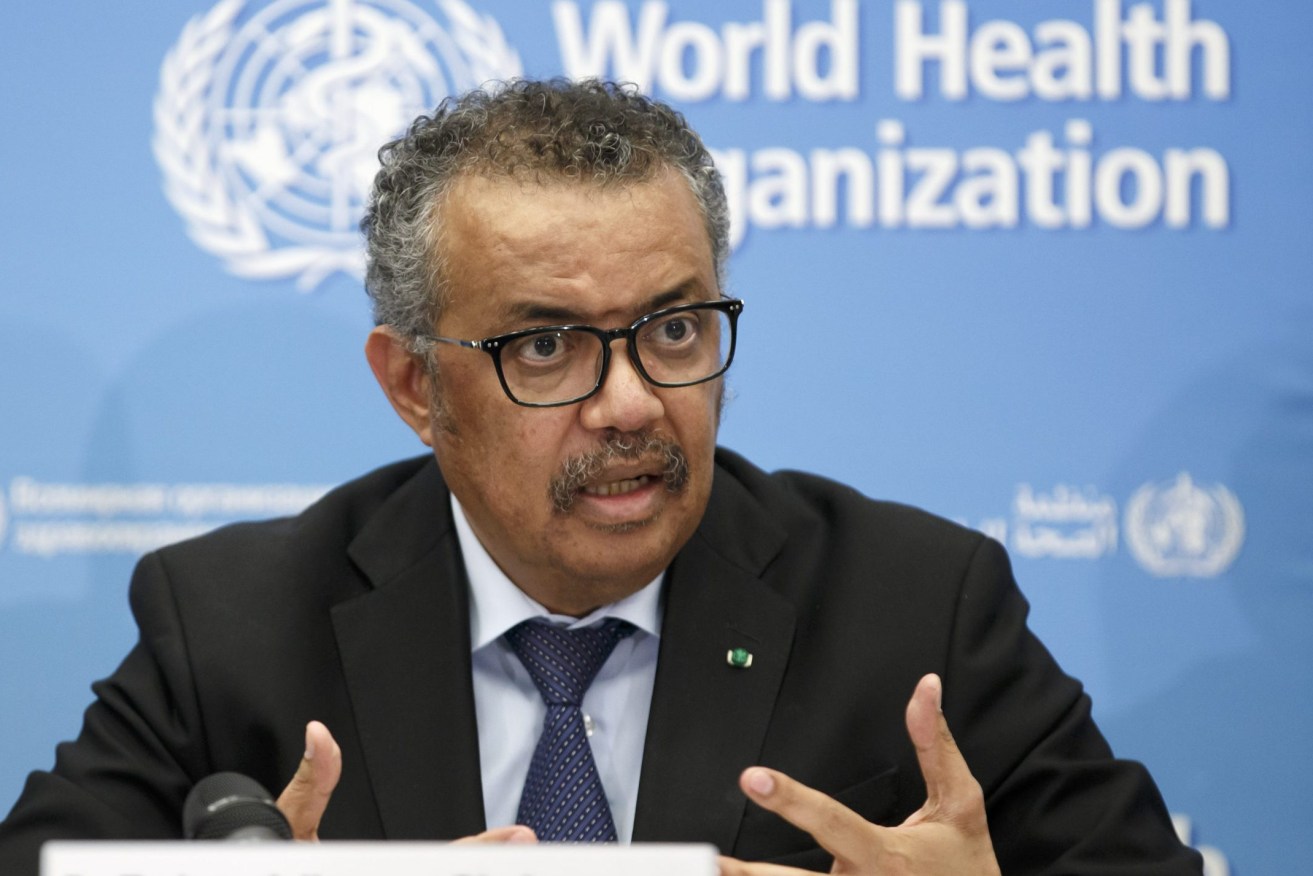WHO chief lashes governments’ ‘self interest’ in Covid-19 fight
The World Health Organisation chief has taken a swipe at Governments for a “toxic combination” of politicisation, short-term self interest and disinformation which is fuelling the Covid-19 pandemic.

WHO Director General Tedros Adhanom Ghebreyesus says he is optimistic the pandemic will end in 2023. (Photo: Salvatore Di Nolfi/Keystone via AP, File)
And he says the attitude of governments is hampering the fight against the evolving virus and the Omicron variant which is now sweeping the world.
His comments come as Australia continues to record soaring Omicron rates and deaths as national borders come down.
WHO Director-General, Dr Tedros Adhanom Ghebreyesus, used his opening remarks at a meeting of the Emergency Committee on Covid-19 to lash out at governments and politicians.
He said whilst the past year had provided hope in the battle against the pandemic, many barriers remain.
“We have also faced many hurdles, including politicisation, nationalism, short-term self interest disinformation and more,” he said.
“This toxic combination has hampered the response, fuelling the transmission and evolution of the virus and hampering equitable access to the tools to prevent, detect and treat it,” Ghebreyesus said.
As a result of this, he said many countries around the world could not even meet basic baseline needs or modest targets.
Whilst more than 9.4 billion vaccine doses have been administered globally, 90 countries had failed to vaccinate 40 per cent of their populations by the end of 2021. And 36 of these had not even vaccinated 10 per cent of their population.
Hardest hit in terms of vaccine shortages is Africa where a staggering number of people have not even had a vaccine at all.
“More than 85 per cent of the population of Africa – about one billion people – is yet to receive a single dose of vaccine,” Ghebreyesus said.
“We cannot end the acute phase of the pandemic unless we work together to close these gaps.”
Last week new Covid-19 cases around the world exploded. More than 15 million new cases were reported, the most cases reported so far in a single week – and this is said to be an underestimate of the true number.
The WHO Technical Advisory Group on Covid-19 Vaccine Composition has advised that more vaccines are needed which have a greater impact on preventing infection and transmission.
“Until such vaccines are developed, the composition of current Covid-19 vaccines may need to be updated to ensure they continue to provide WHO-recommended levels of protection against infection and disease,” he said.
The advisory group says that a vaccination strategy based on repeated booster doses of the original vaccine is unlikely to be sustainable.
The immediate priority for the world right now was accelerating access to primary vaccination, it said.
Ghebreyesus warned that continued transmission of the virus “means more risk of another variant emerging that is even more transmissible and more deadly than previous variants”.
“Ending the inequitable distribution of vaccines, therapeutics and diagnostics remains the key to ending the pandemic. If we end inequity, we end the acute phase of the pandemic.”












